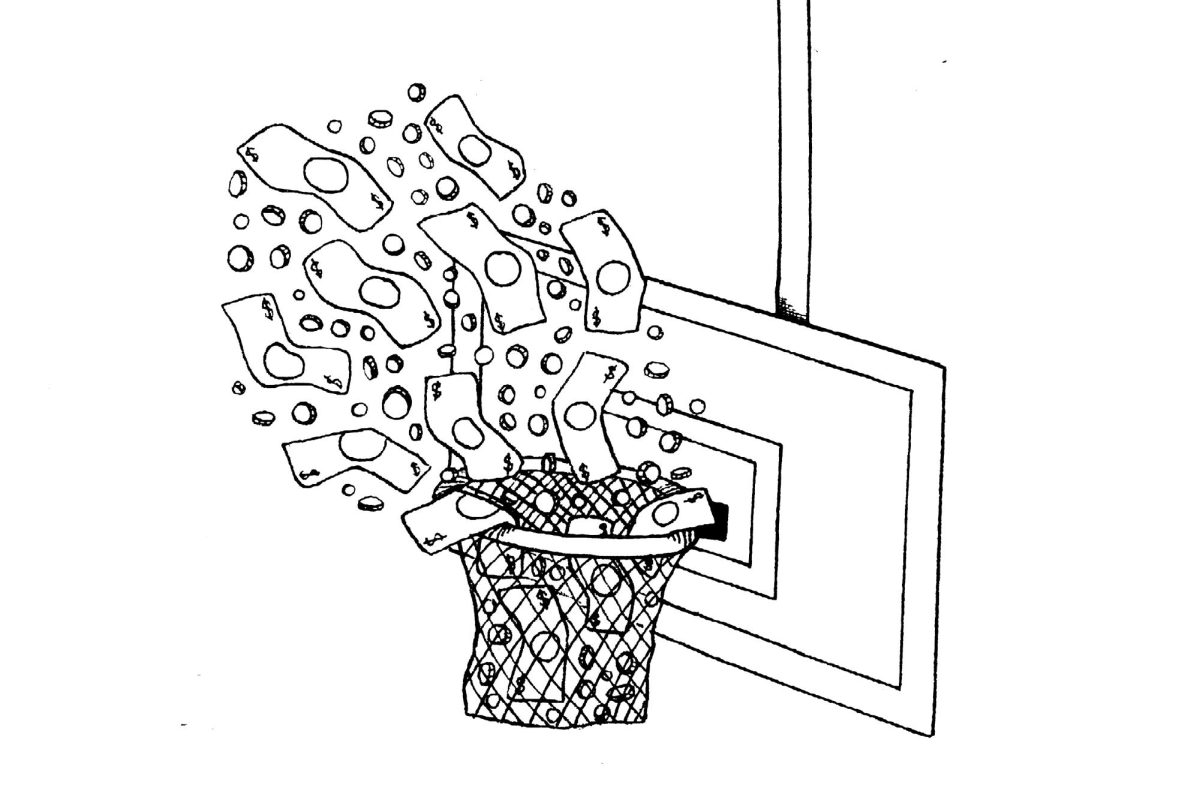While scaling back spending kept the University financially solvent amid the COVID-19 pandemic, lingering budget cuts to the Columbian College of Arts and Sciences and GW Libraries have slashed hours and staff at the Writing Center and Eckles Library over the last year. Students wanting to cram for an exam in Eckles will realize it closes by midnight on most days, and those looking to craft the perfect thesis at the Writing Center will typically find it around maximum capacity. These oft-overlooked services form the backbone of students’ academic experience and deserve officials’ support to remain fully operational.
Housing and tuition revenues dropped during the peak of the pandemic while expenses tied to financial aid and COVID infrastructure, like testing and isolation housing, shot up. The result was a $180 million gap in the University’s budget for fiscal year 2021, which runs from July 2020 through June 2021. Officials suspended most capital projects and froze hiring new employees in March 2020 before taking pay cuts and freezing all salaries in May. In August, they laid off hundreds of staff in IT offices, the career center, facilities and event departments.
Eckles and the Writing Center already faced a financial crunch without the pressure of the pandemic – the University’s libraries underwent an earlier round of budget cuts in 2016. And other major pandemic expenses, like a $140 million loan from GW to the Medical Faculty Associates, has pulled vital funding away from academic programming at schools like CCAS, which funds the Writing Center. Now, budget cuts for GW Libraries and CCAS have strained these services further.
Eckles hasn’t opened before noon on any day of the week since last fall when it reopened for the first time since March 2020. And ever since, it has been shutting its doors by midnight Sunday through Thursday and 6 p.m. on Friday and Saturday. Before the pandemic, Eckles’ study spaces, reading rooms and computer labs opened at 8 a.m. during the week and 10 a.m. on the weekend, closing at 3 a.m. Monday through Thursday and on Sundays and midnight on Friday and Saturday. But because each of GW’s libraries receive funding from the same budget, officials reduced hours at Eckles to keep Gelman open for 24 hours a day.
Eckles’ limited hours push students to either take the Vex to Gelman Library in Foggy Bottom late at night or disregard the library entirely. If anything, reducing hours at Eckles will establish a self-fulfilling prophecy – no one’s using it, so why bother funding it?
The Writing Center – a program entirely funded by CCAS that offers free writing assistance to students – has neared its limits between slashed operating expenses and this year’s large freshmen class, thinning appointments that could provide help on an essay or any other writing assignment. CCAS, which assigns its staffing at the Writing Center based on a total share of hours instead of dollars, cut its hours allocated to employees at Gelman by 7 percent for this school year and added a lunch hour closing the space from noon to 1 p.m. And to reduce costs and protect employees’ hours, officials avoided hiring new staff for the Writing Center this year and shut down its operation at Eckles and Himmelfarb Libraries and the Multicultural Student Services Center.
The state of the Writing Center and Eckles Library also reflects then-University President Thomas LeBlanc’s plan to prioritize STEM enrollment over the humanities as part of his strategy to reduce overall undergraduate enrollment. While the pandemic would render LeBlanc’s strategic plan obsolete, the underlying attitude remains – GW’s humanities programs are the first on the chopping block.
Resources that students actually want to use are withering under a period of austerity. Between checking out a book or getting guidance on an assignment, both Eckles and the Writing Center provide students with essential services – being able to write and communicate effectively is a skill that benefits any and every student. And these programs are especially useful for freshmen, most of whom live on the Mount Vernon Campus and all of whom must take GW’s mandatory University Writing course.
If GW’s finances are still suffering, then so are students. So while officials may not have the cash on hand to fully fund Eckles or the Writing Center, they can find ways to continue supporting both, the staff who run them and the students who use them. Staff with GW Libraries have already created virtual tutoring and academic programs, and they can digitize some of Eckles’ collection or create other virtual resources to ensure students can access the services they need while keeping costs down.
And while Writing Center funding falls to CCAS, students in every school can use its services too. Splitting funding for the program between GW’s schools on a proportional basis instead of placing the burden on CCAS alone could provide a more flexible source of funding for the program and demonstrate its value to the entire University community. Maintaining a library and tutoring center isn’t exactly a high bar for a university to clear. These are resources that most students expect, but these cuts remind us that we shouldn’t take them for granted.
The fiscal cliff facing the University in 2020 called for difficult decisions, but a cascading series of budget cuts that led CCAS and GW Libraries to scale back valuable programs has come perilously close to the bone. As the University’s financial health slowly recovers, the lifeblood of the student experience – the search for and acquisition of knowledge – can’t be left behind.
The editorial board consists of Hatchet staff members and operates separately from the newsroom. This week’s staff editorial was written by Opinions Editor Ethan Benn and Contributing Opinions Editor Riley Goodfellow, based on discussions with Research Assistant Zachary Bestwick, Sports Editor Nuria Diaz, Copy Editor Jaden DiMauro, Culture Editor Clara Duhon, Contributing Culture Editor Julia Koscelnik and Contributing Social Media Director Ethan Valliath.


